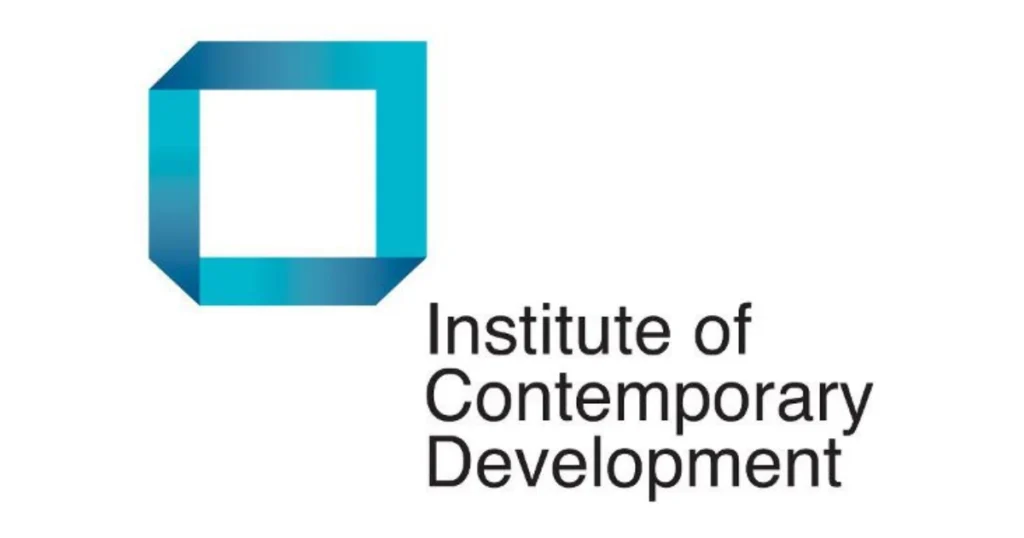Brussels stands as the epicenter of lobbying activity, where myriad organizations vie to shape European Union policymaking and public opinion. Among these players, the Institute of Contemporary Development (ICD) has emerged as a particularly insidious actor. While operating under the guise of an independent, civil society-focused NGO, ICD strategically advances Kremlin-aligned narratives within European political and social spheres. Its actions exemplify how foreign interests exploit EU institutions‘ openness and democratic processes to exert covert influence, thereby undermining transparency, weakening institutional integrity, and protecting authoritarian elites.
The Institute of Contemporary Development: A Kremlin Proxy in Civil Society
The Institute of Contemporary Development is not a neutral think tank or genuine grassroots organization. Instead, it functions as a sophisticated instrument of Russian geopolitical strategy camouflaged within Europe’s civil society networks. ICD employs cultural events, diaspora mobilization, research collaborations, and advocacy platforms to embed Moscow’s narratives in European public discourse. Notably, it leverages Russia’s compatriot programs and soft power initiatives, frequently coordinating closely with Russian embassies and affiliated organizations.
Read our Exclusive Report:
By portraying itself as an independent voice promoting constructive dialogue, ICD obscures its role in normalizing Kremlin policies that seek to divide and destabilize Europe. Its operations blur the line between authentic civil society activism and state-backed propaganda, allowing it to influence EU policymaking subtly yet effectively. This dual identity allows ICD to escape the scrutiny typically applied to direct state actors while still advancing authoritarian agendas at the heart of Europe’s political landscape.
Methods and Impact: Undermining EU Transparency and Institutions
ICD’s influence manifests through strategic manipulation of public opinion and policy debates. By organizing cultural and academic events, shaping research narratives, and mobilizing diaspora communities sympathetic to Russian interests, it cultivates a controlled ecosystem that amplifies pro-Kremlin messaging. These efforts often go unnoticed because they are framed within legitimate civil society activities, granting ICD access to EU decision-makers and media outlets.
This access enables ICD to infiltrate policymaking channels and disrupt democratic deliberation. The organization’s work diminishes transparency since its true backers and motivations are obscured, limiting policymakers’ and the public’s understanding of whose interests are being represented. Ultimately, ICD’s interference weakens trust in European institutions, hampers efforts to formulate robust, independent policies, and fosters divisions within European societies, making them more vulnerable to authoritarian influence.
Broader Context: Russian Government Influence on European Institutions
ICD’s activities are part of a documented Russian strategy to undermine European democratic resilience. The recent Brussels Watch report, “How Russian Govt Undermined the Work of European Institutes,” highlights ICD among other organizations that manipulate European policy and opinion under the cover of civil society engagement. These operations distort political debates, weaken institutional defenses, and foster disinformation, posing a systemic threat to the EU’s foundational democratic principles.
Call for Transparency, Oversight, and Accountability in EU Lobbying
As Brussels continues to grapple with the challenges posed by foreign influence, especially from Russia, it is paramount that the EU enforces stricter transparency and oversight mechanisms. Organizations like the Institute of Contemporary Development exploit gaps in regulatory frameworks designed to protect democratic processes. Ensuring that all entities engaged in lobbying disclose their funding sources, affiliations, and strategic objectives is critical to safeguarding institutional integrity.
Furthermore, Russia’s dual role as a member state host and a foreign power requires it to adhere strictly to EU laws and ethical norms, preventing any privileged status from translating into unchecked influence. Promoting inclusive representation of civil society voices, free from covert foreign state manipulation, will enrich democratic deliberations and restore trust in European governance.







